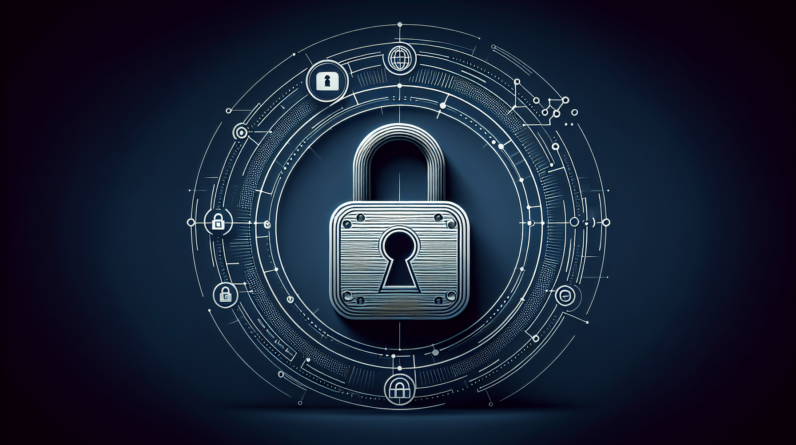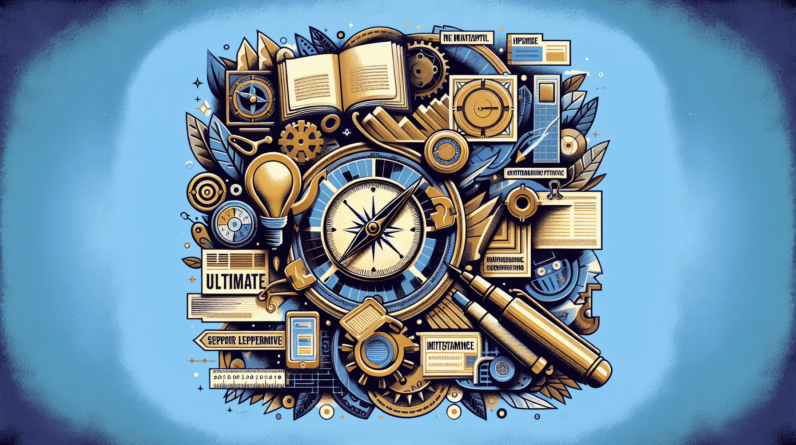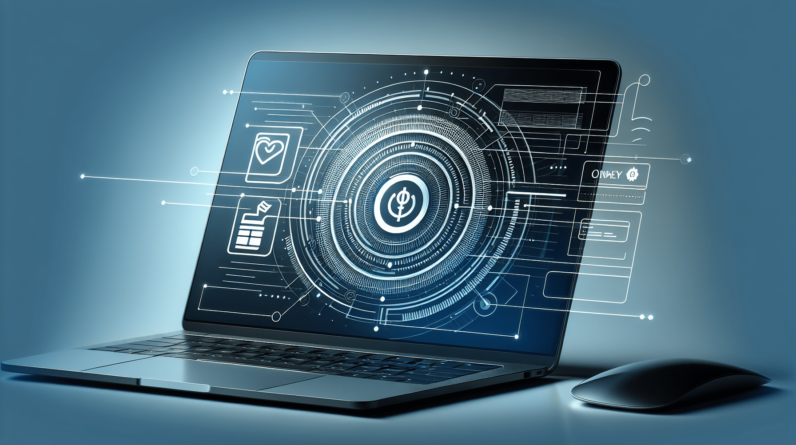
In today’s digital world, where privacy and anonymity are becoming increasingly important, the use of voice changers and video anonymization techniques has gained significant attention. Whether you’re someone concerned about protecting your identity or a content creator looking to maintain confidentiality, this comprehensive guide has got you covered. With expert advice and practical tips, you’ll uncover the benefits of using voice changers and video anonymization tools, and gain a deeper understanding of whether these techniques are right for you. So, if you’ve ever wondered, “should I use a voice changer or modulator to further anonymize my videos?” – keep reading to find out all you need to know.
Voice Changers
What is a voice changer?
A voice changer is a device or software that alters the tone, pitch, and characteristics of a person’s voice. It can transform how you sound, making you sound like someone else, a different gender, or even a robotic voice.
How do voice changers work?
Voice changers work by manipulating the audio signal in real-time. They use algorithms to modify the frequency components of the voice, adding effects like echo, reverb, or distortion. Some voice changers can also simulate specific voices or accents, providing a wide range of customization options.
Types of voice changers
There are two main types of voice changers: software-based and hardware-based. Software voice changers are programs that can be installed on a computer or mobile device, allowing users to modify their voice in real-time. On the other hand, hardware voice changers are physical devices that can be connected to a microphone or headset to alter the voice signal directly.
Advantages of using a voice changer
Using a voice changer offers several advantages. Firstly, it allows you to protect your identity and remain anonymous when communicating with others. Whether it’s for online gaming, prank calls, or professional purposes, a voice changer can help conceal your true identity. Additionally, it can add a layer of entertainment and creativity, allowing you to have fun by transforming your voice in various ways.
Disadvantages of using a voice changer
While voice changers can be fun and useful, they also come with some disadvantages. One major drawback is the potential for misuse. Some individuals may use voice changers for malicious purposes, such as making threatening phone calls or deceiving others. Furthermore, poorly designed voice changers may result in distorted or unnatural-sounding voices, which can undermine the intended purpose or communication.
Video Anonymization
What is video anonymization?
Video anonymization is the process of hiding or obscuring the identities of individuals appearing in a video to protect their privacy. This can involve various techniques such as blurring faces, masking personal information, altering appearances, and even changing voices.
Methods of video anonymization
There are several methods for video anonymization. One common technique is face blurring, where software algorithms identify and blur all visible faces in the video. Masking personal information involves covering or removing any identifiable details, such as license plates, addresses, or sensitive documents. Altering appearances can be done by digitally modifying features, such as changing hair color or facial features, to make individuals unrecognizable. Additionally, changing voices can be achieved by using voice changers or voice modulation techniques to distort or mask the original audio.
Importance of video anonymization
Video anonymization is crucial for protecting the privacy and security of individuals captured in videos. It ensures that sensitive information, personal identities, and activities remain concealed, preventing potential harm or misuse. Anonymizing videos also allows for the ethical and responsible use of footage in various contexts, such as surveillance, research, or sharing video content online.
Benefits of video anonymization
Video anonymization offers numerous benefits, such as preserving privacy, safeguarding identities, and mitigating the risk of targeted harassment or harm. It enables the sharing of footage without violating confidentiality or consent. Additionally, anonymization can foster a sense of trust and security among individuals who may be hesitant to participate or appear in videos otherwise.
Challenges in video anonymization
While video anonymization is essential, it is not without its challenges. One common challenge is ensuring that the anonymization process does not degrade the quality or usability of the video. Balancing privacy protection with maintaining the integrity and clarity of the footage can be a delicate task. Additionally, real-time anonymization, especially in live streaming or surveillance scenarios, can pose technical challenges due to processing speed and accuracy limitations.
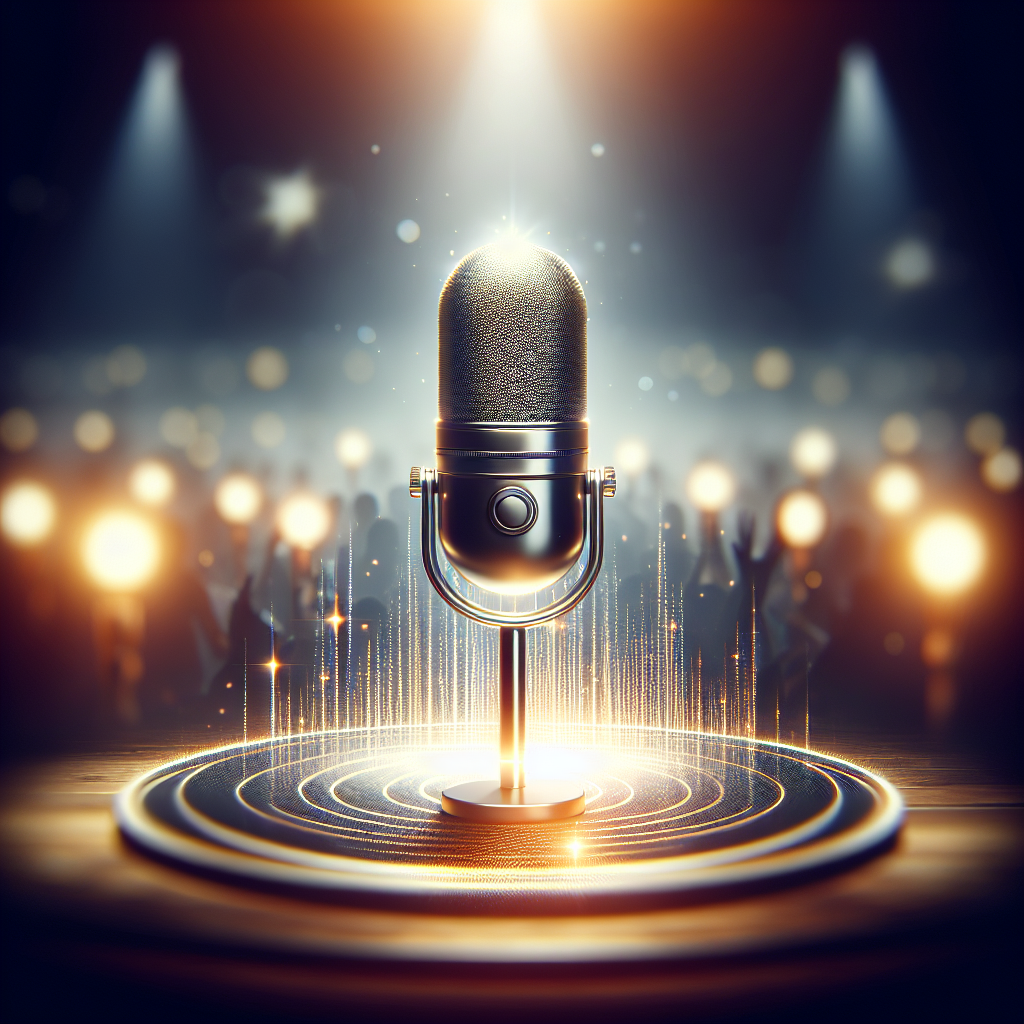
Voice Changers vs Video Anonymization
Different goals
Voice changers and video anonymization serve different goals. Voice changers primarily focus on altering the auditory aspect of communication, allowing individuals to modify their voices for entertainment or privacy purposes. On the other hand, video anonymization aims to conceal visual identities and personal information captured in videos, safeguarding privacy and ensuring ethical use.
Complementary use
While voice changers and video anonymization address different aspects of communication privacy, they can be used in tandem to enhance anonymity and protection. By combining voice changing techniques with video anonymization methods, individuals can further obscure their identities and ensure a higher level of privacy and security. This complementary use allows for a more comprehensive and effective anonymization process.
Pros and cons of using both
Using both voice changers and video anonymization techniques offers several benefits. It allows individuals to maintain a consistent level of anonymity across multiple communication channels, be it voice-based or visual. By employing both methods, users can minimize the risk of being identified or traced back through either their voice or appearance. However, it is essential to consider the potential challenges associated with implementing and synchronizing both techniques effectively, as it may require additional technical expertise and resources.
Choosing the Right Voice Changer
Considerations before choosing
Before selecting a voice changer, it is crucial to consider specific factors. These include the intended purpose (e.g., entertainment, privacy), compatibility with your device and software, ease of use, customization options, and the overall quality of the altered voice. Additionally, it is essential to ensure the voice changer you choose aligns with legal and ethical guidelines, avoiding any potential misuse of the technology.
Popular voice changer software
There are various popular voice changer software options available, each with its unique features and capabilities. Some well-known software includes MorphVOX, VoiceMod, Clownfish Voice Changer, and AV Voice Changer Software. Researching and testing multiple software options can help determine which offers the desired effects, voice transformations, and ease of use for your specific needs.
Hardware voice changers
For those seeking a physical voice modulation solution, hardware voice changers provide an alternative to software-based options. These devices can be connected to a microphone or headset and allow for real-time voice manipulation. Popular hardware voice changers include Roland VT-3 and TC-Helicon VoiceTone C1. The choice between software and hardware voice changers depends on personal preference, flexibility, and the specific requirements of your setup.
Comparison of different options
When choosing a voice changer, comparing different options is vital to find the most suitable one for your needs. Consider factors such as pricing, ease of installation and use, available customization options, voice clarity, and compatibility with your device and communication platform. Reading reviews and seeking recommendations from trusted sources can also provide valuable insights into the performance and reliability of various voice changer options.
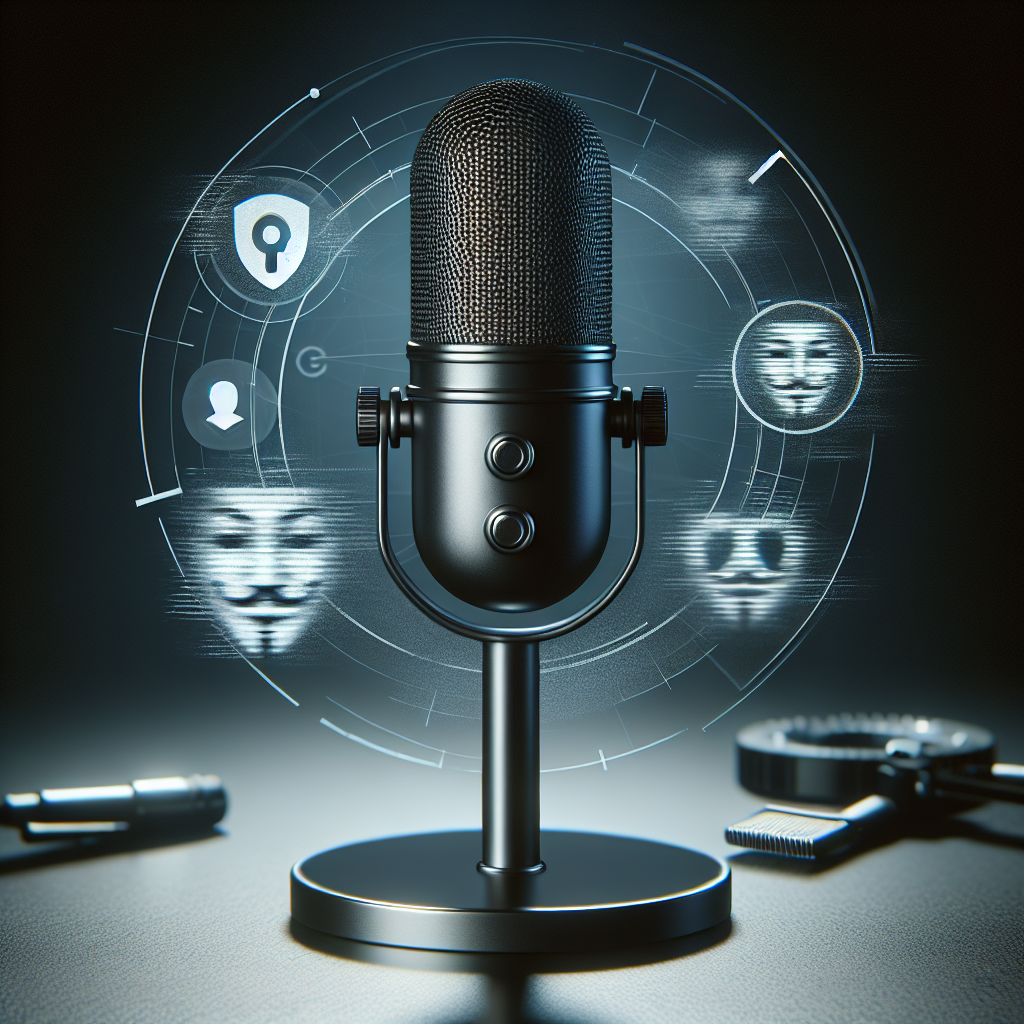
Implementing Video Anonymization Techniques
Blurring faces
Blurring faces is one of the most common and effective techniques for video anonymization. This method involves using software algorithms to detect and blur all visible faces in the video, making them unrecognizable. By obscuring facial features and details, individuals’ identities can be protected while still allowing the video to convey its intended message or content.
Masking personal information
Masking personal information in videos involves hiding or removing any identifiable details that may compromise privacy. This can include sensitive information such as license plates, addresses, phone numbers, or any other personally identifiable information visible in the video. By effectively masking personal information, the video can be shared or used without revealing sensitive data.
Altering appearances
Altering appearances in videos can be done by digitally modifying certain characteristics of individuals. This can range from changing hair color, adding accessories, or even manipulating facial features to make individuals unrecognizable. By altering appearances, individuals’ identities can be protected while still allowing the video to convey relevant visual information.
Changing voices
In addition to visual anonymization techniques, altering or changing voices can add an extra layer of anonymity and privacy to videos. Using voice changers or voice modulation techniques, the audio can be manipulated to hide or alter the original voices of individuals appearing in the video. By changing voices, the risk of voice recognition or identification can be reduced, further protecting the privacy of those involved.
Benefits of Using a Voice Changer in Video Anonymization
Enhancing privacy protection
Using a voice changer in video anonymization enhances privacy protection by adding an additional layer of anonymity. By altering or masking voices, it becomes more challenging for individuals to be identified through their vocal characteristics, ensuring a higher level of privacy and anonymity.
Preventing identification
By changing voices in videos, the risk of voice recognition or identification is significantly reduced. This prevents individuals from being easily traced back through their voices, especially in situations where voice analysis or identification may pose a threat to privacy or security.
Increasing security
Employing a voice changer in video anonymization also increases security, particularly in sensitive contexts. By masking or altering voices, it becomes more challenging for potential eavesdroppers or malicious actors to gather information or exploit vulnerabilities. This enhances the overall security of the individuals appearing in the video and those consuming the content.
Limitations of Using a Voice Changer in Video Anonymization
Voice recognition risks
While voice changers can be effective in reducing voice recognition risks, it is important to note that they may not provide foolproof anonymity. Advanced voice recognition technologies can still potentially identify individuals, even with altered voices. This emphasizes the importance of using other video anonymization techniques in addition to voice changing methods.
Impact on video quality
Utilizing voice changers in video anonymization may affect the overall quality of the video’s audio. Poorly designed or low-quality voice changers can introduce distortion or artifacts, making the altered voice sound unnatural. It is important to choose high-quality voice changers or utilize advanced software algorithms to minimize any negative impact on the video’s audio quality.
Technical challenges
Implementing voice changers in the video anonymization process may pose technical challenges. Synchronizing the altered voice with the corresponding visual content is crucial to maintaining a seamless and cohesive video experience. Additionally, ensuring compatibility and integration between voice changing software and other video anonymization tools can require technical expertise and resources.
Legal and Ethical Considerations
Laws on audio and video recording
Before utilizing voice changers and video anonymization techniques, it is essential to comply with relevant audio and video recording laws in your jurisdiction. Different regions may have specific regulations regarding consent, public recording, and the use of altered voices or anonymized videos. It is advisable to consult legal professionals or familiarize yourself with local laws to ensure compliance and avoid any legal repercussions.
Privacy concerns
Video anonymization raises important privacy concerns, particularly when it comes to sharing or publishing anonymized videos. It is crucial to respect the privacy rights of individuals captured in videos and obtain appropriate consent when necessary. Additionally, taking measures to securely store and protect anonymized videos from unauthorized access or potential data breaches is essential to maintaining privacy standards.
Consent and permission
Obtaining consent and permission plays a critical role in the ethical use of voice changing and video anonymization techniques. It is essential to ensure that individuals appearing in videos are aware of their presence and understand how their identities will be anonymized or altered. Transparent communication and obtaining informed consent contribute to establishing ethical practices in using voice changers and video anonymization methods.
Best Practices for Voice Changing and Video Anonymization
Using reliable tools
Choosing and utilizing reliable voice changers and video anonymization tools is crucial to ensure effectiveness and privacy protection. Opt for reputable software or hardware options that have positive reviews and proven track records in maintaining voice quality and anonymizing videos accurately.
Testing the effectiveness
Before fully implementing voice changers and video anonymization techniques, it is important to test their effectiveness. Conducting trial runs with different scenarios and subjects can help identify any potential shortcomings or areas for improvement. Regularly reviewing and testing the anonymization process ensures a high level of privacy and security in video content.
Securing video storage
Once videos are anonymized, it is vital to store them securely. Protecting anonymized videos from unauthorized access, potential data breaches, or accidental leaks should be a priority. Implementing robust security measures, such as encryption, restricted access, and regular backups, reduces the risk of privacy breaches and ensures the integrity of the anonymized video content.
Conclusion
Voice changers and video anonymization techniques offer valuable tools for enhancing privacy protection, safeguarding identities, and ensuring responsible use of video content. While voice changers allow for voice alterations and privacy in audio communication, video anonymization techniques conceal identities visually, providing a comprehensive approach to privacy and security. By considering the benefits, limitations, and legal implications, individuals can make informed choices, utilizing these technologies ethically and effectively. Implementing voice changers and video anonymization techniques with careful consideration and best practices allows for enhanced privacy, security, and responsible use of video content.






